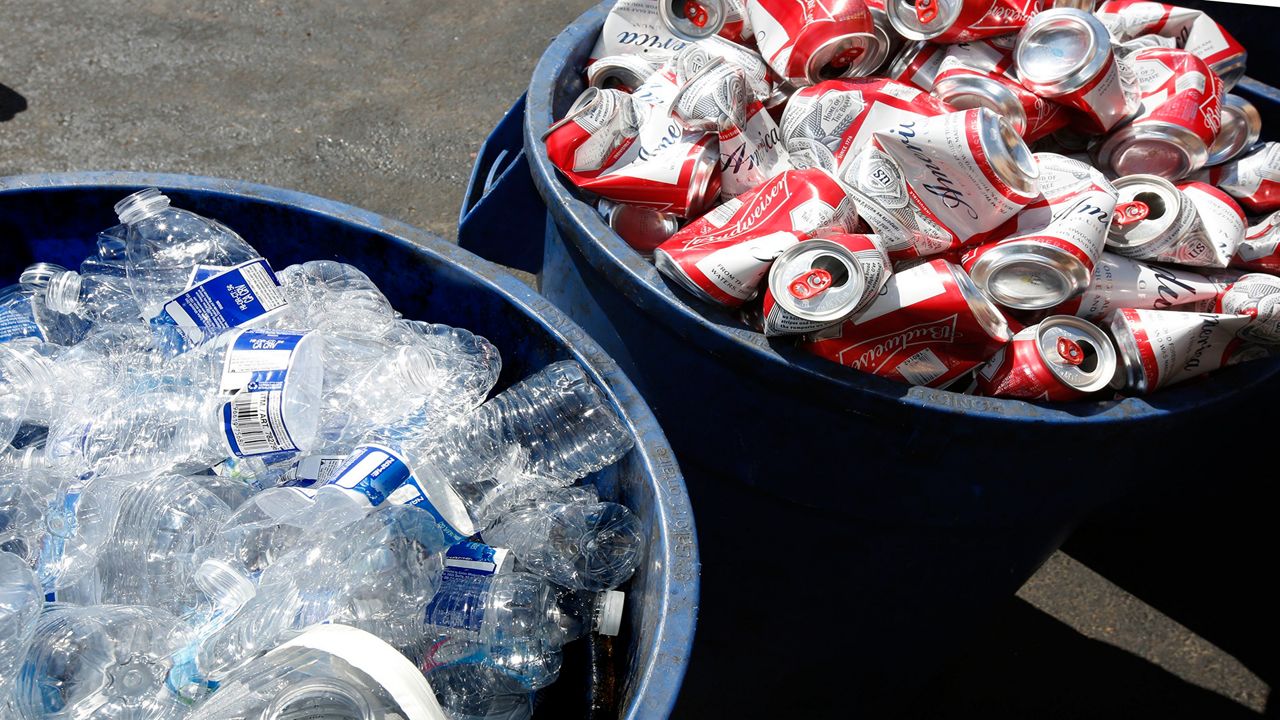CLEVELAND — As the city evaluates options for its defunct recycling program, officials say it is launching Circular Cleveland, a larger initiative to develop and incorporate sustainable practices into the city’s economy.
What You Need To Know
- Cleveland is joining other cities, governments and businesses which are working to drive a global shift to a circular economy as part of the Ellen MacArthur Foundation Network.
- In a circular economy, products and materials stay in use in the system as long as possible and are then regenerated or refurbished, which the city says can create jobs.
- Circular Cleveland has received a $476,000 Robert Wood Johnson Foundation grant, which is part of a $3 million effort to bring together the best ideas from around the world that address health, equity and climate change.
For the city to advance, “substantive institutional changes” are necessary, Mayor Frank G. Jackson said in a press release.
“Our Circular Cleveland initiative does this by building on our city’s long-term commitment to sustainability and using a new approach to improve health outcomes in our neighborhoods and build wealth for our residents,” he said.
In the two-year Circular Cleveland initiative, starting in early January, the city will partner with Cleveland Neighborhood Progress, a nonprofit that supports community development corporations and champions revitalization of all the city’s neighborhoods.
The fundamental idea is to deploy systems that eliminate waste and pollution from the economy through design, redirecting goods back into the stream to be refurbished, regenerated and reused in some form.
The circular economy is not a new idea. Cleveland is joining the Ellen MacArthur Foundation Network, which comprises other cities, governments and businesses all working to drive a global shift to a circular economy, the city said.
To that end, Circular Cleveland has received a $476,000 Robert Wood Johnson Foundation grant, which is part of a $3 million effort to bring together the best ideas from around the world that address health, equity and climate change.
Cleveland’s economy, like many cities, is currently based on a “take-make-waste model,” according to Sustainable Cleveland, the city’s 10 -year initiative started last year to build economic, social and environmental well-being for Cleveland residents.
The waste-generating model is one in which raw goods are used to make products that work - until they don’t - and are then carted to a landfill to join the billions of tons of other goods that also become waste.
In the circular model, products and materials stay in use in the system as long as possible and are then regenerated somehow; an effort the city says can also create jobs.
Systems can be either technical, which includes materials like metal, or biological, which includes compost, but in a circular economy, all systems work to build “capital” that can be fed back into the system, according to the Ellen MacArthur Foundation.
The circular economy relies on three basic principles:
- Using design to eliminate waste and pollution
- Keeping products and materials in use indefinitely
- Regenerating natural systems
Circular Cleveland is planned to roll out in two phases.
Phase 1 is underway and is expected to take 12 months. It is planned to result in creation of a “circular economy roadmap.” During the first year, officials will host community workshops to get input from residents, the city said.
Cleveland Climate Action Fund grants will also be available for local circular economy projects. The city also plans to launch a composting program at the Westside Market during this phase.
Phase 2 will take about 18 months and will focus on implementation, the city said. It will include a second round of Climate Action Fund grants geared for small businesses engaged in circular economy programs.
During this phase, the city will also expand the education and engagement component of Circular Cleveland.
In the meantime, a consultant the city hired earlier this year has been evaluating the city’s recycling program, which was halted last spring.
When Cleveland’s recycling contract expired last April 1, there were no takers for the request for proposals issued, the city said in a statement.
A second RFP was issued and the only bid submitted would have cost the city an additional $6 million per year, the city said.
Globally, the recycling industry has been undergoing major changes since 2017 when China issued its National Sword Policy, which put restrictions on the recyclable materials it had once accepted from around the world.



